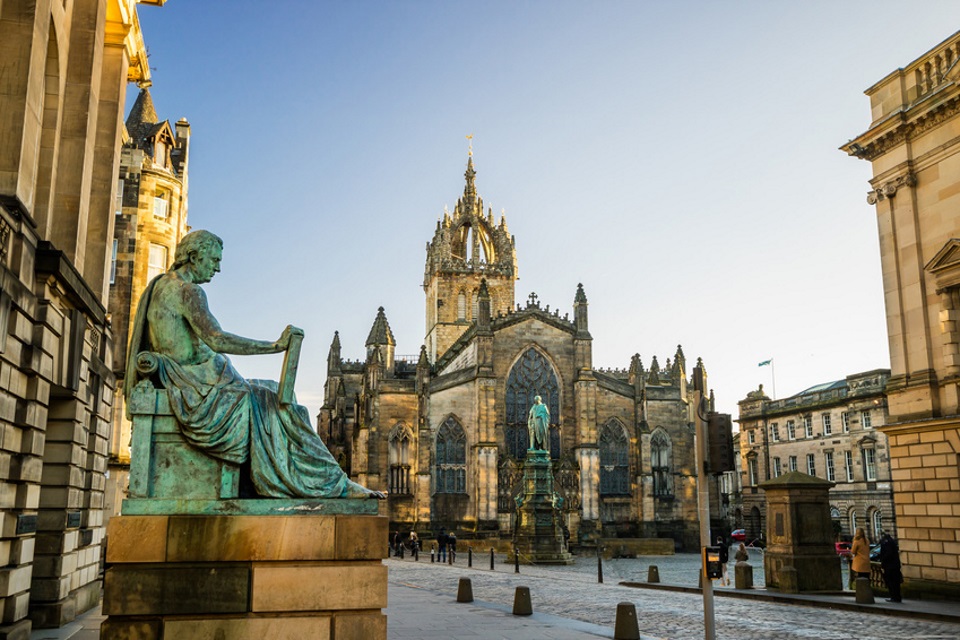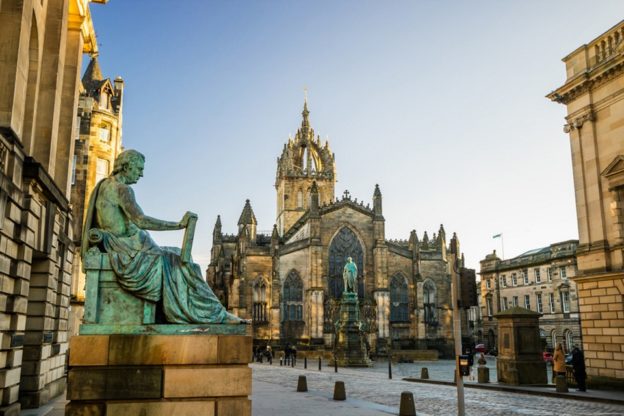
Cultural Britain
The vast wealth accumulated by the British through their domination of trade routes, through slavery and empire and through their love of business (Napoleon famously calling Britain a nation of “shopkeepers”) has enabled Britain to have a disproportionately large share of the world’s treasures in art and culture.
As an island nation, Britain has long sent forth explorers to discover new things, amongst them Darwin and Wallace, the two discoverers of the theory of evolution. Their discoveries came about through the plants and animals that both they and others had collected on their travels. Many of these collections are freely available to the public in places like the Wallace Collection, the Natural History Museum and the British Museum, all located in London.
That was the gentler side of colonialism, other aspects of British culture were direct beneficiaries of the slave trade. Many of the great houses, libraries and civic buildings were built with money from the slave plantations the British owned in the Carribean and elsewhere. This is a legacy that is only just being addressed, with movements to expose the sources of Britain’s continued wealth. Country estates like West Wycombe Park (where Downton Abbey was filmed) and Balmoral (the Queen’s summer residence) were built with slave money.
Libraries
There are a large number of libraries open to the public in Britain and the British Library holds one of the largest collections of English and foreign language manuscripts and books anywhere in the world. They can be accessed with permission and offer an invaluable resource to any researcher.
Public libraries have faced waves of closures due to council cuts in recent years, limiting the British public’s access to their own culture. The Bodlean at Oxford and the Reading Rooms in London are not only architectural and historical treasures, but very modern establishments offering unparallelled access to rare and precious books.
Art
Another relic of slavery and colonialism the British continue to benefit from is the large number of free art galleries. Many were built in the heyday of the industrial revolution to provide access to the newly educated and aspirational public, who were clamouring for greater access to the wealth that had been so unequally distributed. A large proportion of the collections were donated by philanthropic collectors who had spent their vast wealth on art from around the world.
The Elgin Marbles, still housed in the British Museum, were prised from the front of the Parthenon in Athens on the behest of the 7th Duke of Elgin, who, some argue, saved them from later destruction. They are, however, a fine example of British cultural appropriation. Another is Cleopatra’s Needle, an obelisk taken from Egypt and erected in London, or the Benin Head from Nigeria.
In the haste to appropriate art and culture from other parts of the world, the British created an indistinct cultural identity, comprised of many elements either stolen or adapted from other cultures. While this can be said of any culture, the British are only now confronting the legacy of their cultural exploits, which left many nations and peoples without their precious cultural artefacts.
Music
One realm in which the British can be truly regarded as originators, from the Beatles to Led Zeppelin to Adele, the musical output of Britain is incomparable. Most of the bestselling artists of the last few decades have been British, and it is unclear as to why this is the case. Perhaps it is post-colonial links Britain maintains with its ex-colonies that give it easy access, perhaps it is because English is a very useful language to sing and speak in, having many convenient rhymes and more synonyms than any other language. Perhaps it is because the British are catching up for years of little musical output. The Germans regarded 18th century Britain as a “land without music”. This couldn’t be further from the truth nowadays, with music venues in every town and city in the land and a huge chunk of Britain’s exports being musical in nature.
Literature
Another successful export of Britain is the literature. Over 1 million books are published in English every year, many of them in Britain. British authors punch above their weight in terms of cultural and economic impact, with recent successes like J.K. Rowling and Philip Pullman selling the British love of a good story to the world. Dickens, C.S. Lewis, Tolkien, Roald Dahl and more, it cannot be said that the Brits don’t love a good book.
Science
The scientific output of the British is higher than almost anywhere else per capita, and the quality of the research is also very high. From Newton’s laws to the discovery of the electron and the Higgs boson, the island of Britain has long nurtured scientific progress and looks to continue into the future, with several of the top 10 universities being there.

